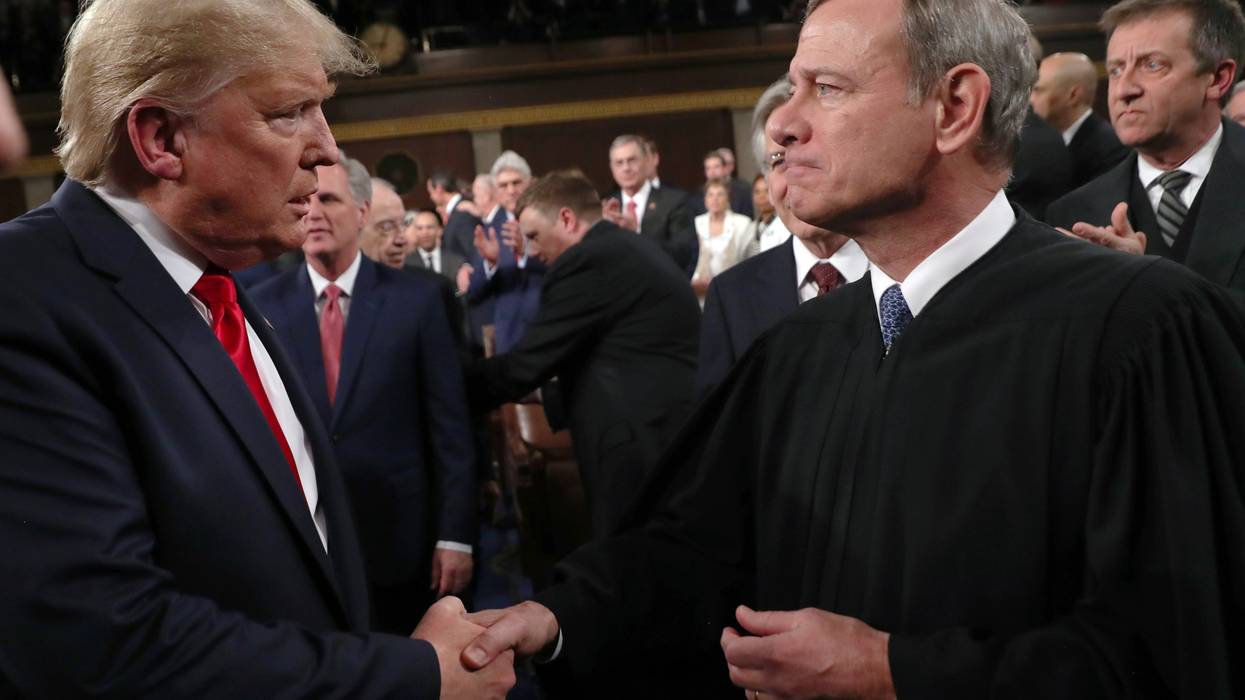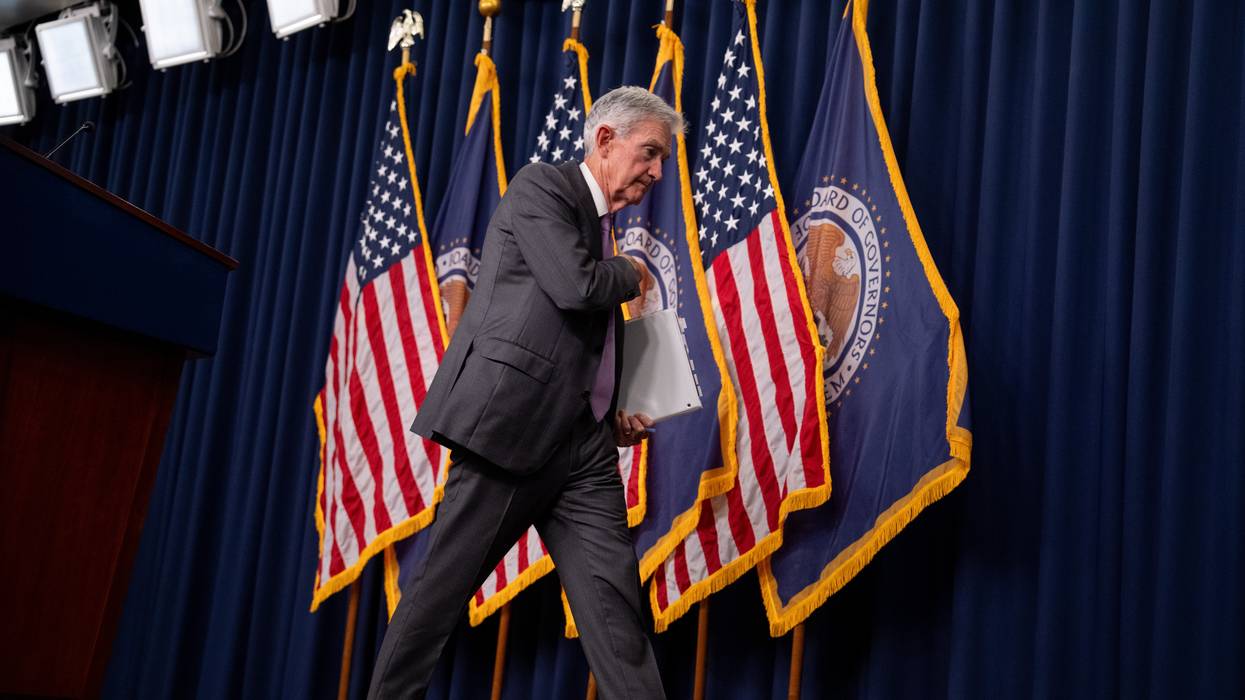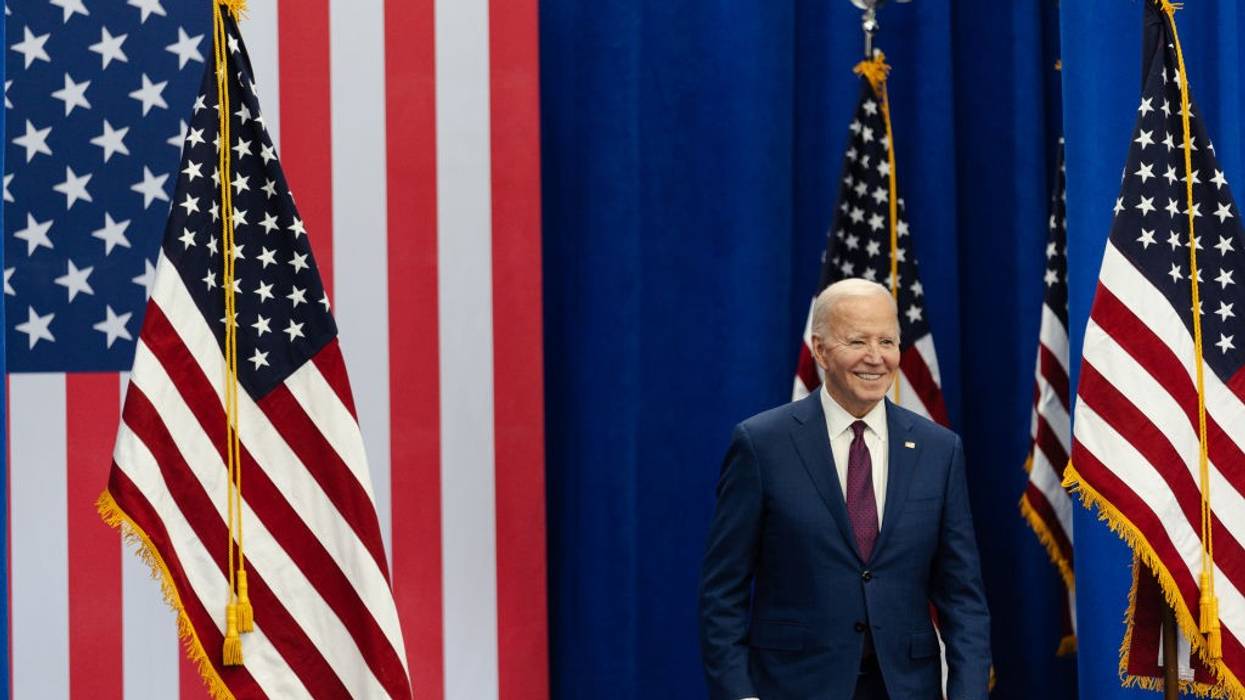I'm Boycotting Trump's State of the Union and So Should You
If he doesn’t believe he’s my president, why should I treat him as my president and watch his State of the Union?
I’m not going to watch the State of the Union address Tuesday night. I urge you not to, either.
I hope Nielsen (or whoever makes such estimates these days) will find that far fewer Americans watched President Donald Trump’s State of the Union than have watched any other State of the Union in recent memory. It will drive Trump nuts.
There are plenty of other reasons for not watching.
First, he doesn’t deserve our attention. He’s abused and defiled the American presidency, even worse than he did in his first term.
I already know the real state of the union. It sucks.
He’s openly taken bribes. He’s blatantly usurped the powers of Congress. He has overtly used the Justice Department to punish people he considers his enemies and pardon people loyal to him. He has willfully rejected the rule of law, broken treaties, literally destroyed part of the White House, thumbed his nose at our allies (including our closest and heretofore loyal neighbors), and utterly failed his constitutional duty to take care that the laws are faithfully executed. He lies like most people breathe. He’s a fraud and a traitor.
Second, we already know what he’s going to say because he’s already stated and restated his lies every chance he gets. He says the economy is in wonderful shape, that he’s settled six wars, that he’s brought peace to the Middle East, that he’s made America safer and more secure, that the 2020 election was stolen from him, ad nauseam.
He assumes that if he repeats these lies often enough, people will believe them. Why should we give him more of an audience for his lies?
Third, he refuses to be president of the United States but only of the people who voted for him in 2024.
He talks in glowing terms about “my” people while denigrating “them”—those of us who didn’t vote for him, who still disapprove of him, or who refuse to give him whatever he wants.
He won’t even fund so-called blue states. So far this year he’s axed over $1.5 billion in blue-state grants, contrary to the wishes of Congress.
If he doesn’t believe he’s my president, why should I treat him as my president and watch his State of the Union?
Fourth and finally, I already know the real state of the union. It sucks.
The economy has been good for big business and wealthy Americans but shitty for small businesses and average working Americans.
Although Trump repeatedly promised that his tariffs would reduce US imports, shrink the trade deficit, and lead to a revival in American manufacturing, the opposite has happened. The annual trade deficit in goods last year hit a record high. And US manufacturers cut 108,000 jobs.
In the 2024 election, Trump also promised to bring down prices, but inflation is still steaming ahead. Prices grew at an annual rate of 3% in December. He’s so out of touch with what most Americans are enduring that he calls the crisis of affordability “fake news.”
He promised to control immigration, but 6 out of 10 Americans think he’s gone “too far” by sending federal agents into American cities who have caused mayhem and murder.
He promised to avoid foreign entanglements, but he abducted the president of Venezuela, killed more than 150 Venezuelans, and is now planning to attack Iran.
His menacing the Middle East has created another inflation risk: The possibility that a key oil export route will be disrupted has caused the price of Brent crude to soar.
For all these reasons, I’m not going to watch Trump’s State of the Union. I recommend that you don’t, either.
Your senators and representatives in Congress should boycott it, too. You might call their offices to suggest this. (Some Democrats are already planning to skip it, opting instead for a counter-programming event on the National Mall dubbed “The People’s State of the Union.” Good!)
And why the hell should justices of the Supreme Court show up, especially after he says he’s “ashamed” of the six who decided his tariffs exceeded his authority—calling the three Democratic appointees a “disgrace to our nation” and the three conservatives who voted against him “fools and lapdogs for the RINOs and the radical left Democrats,” “very unpatriotic and disloyal to our Constitution,” “swayed by foreign interests,” and “an embarrassment to their families”?
Boycott the State of the Union. It’s the least we can do.


